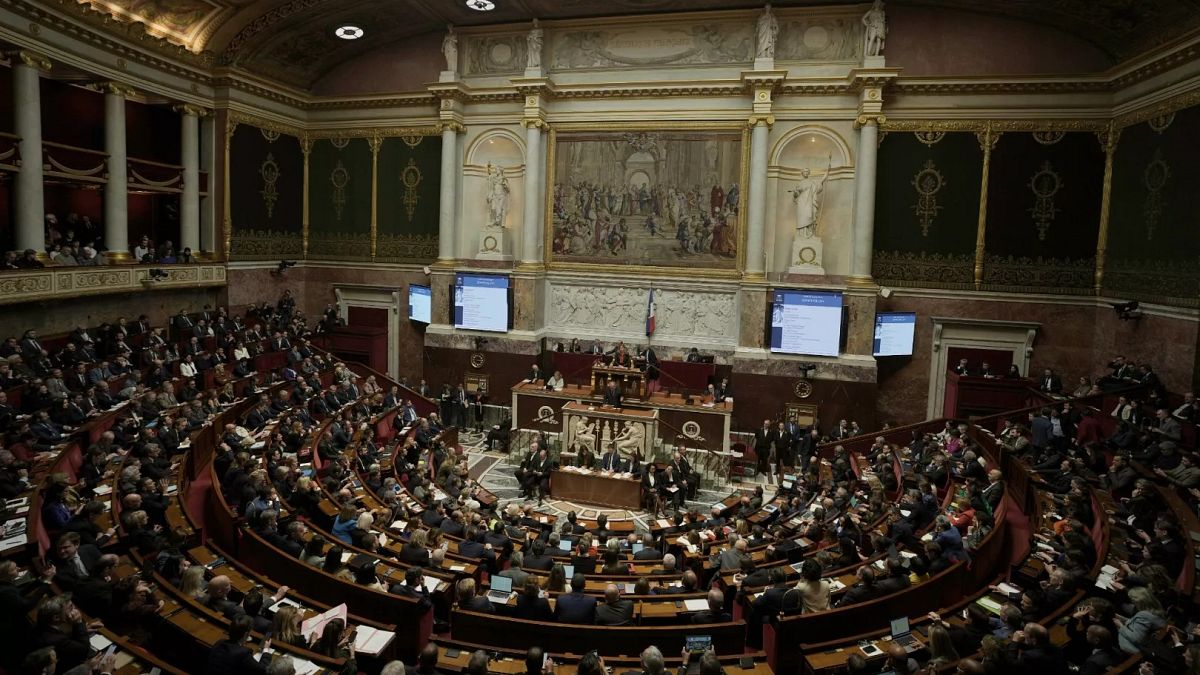ADVERTISEMENT
Economists are keeping a close eye on the French political arena ahead of the 8 September vote of confidence, which could lead to the resignation of the government.
Prime Minister François Bayrou has pledged the government’s confidence in an attempt to win MPs over to his budget recovery plan. France could be set to get its third government in a year, instability that does not please the markets.
“Clearly, the markets are watching the situation and thinking about what it could mean. And of course, if the political turmoil were to worsen, that could put pressure on French bond yields. And that in itself is of course negative for the French economy because higher interest rates mean that investment becomes more expensive,” Bruegel economist Guntram Wolff told Euronews.
“Political instability generally leads to a certain loss of investor confidence. We need to be clear that any major political unrest will have consequences for investors, both in France, but also for foreign investors who are thinking of France as an investment destination.”
France’s debt continues to grow, so Bayrou wants to make savings of €44 billion by 2026 to bring the public deficit below 3% by 2029. In particular, he proposes to reduce public spending, combat tax fraud and abolish two public holidays.
The National Rally, France Unbowed, the Communists and the Ecologists have already announced that they will vote against the government.
Consequences for the EU
The EU expects France to put its finances in order, in line with its European commitments. The task will be all the more difficult if the government falls.
“France has committed itself to reducing its deficit in a multi-year plan that it has agreed with the European Union. So obviously, the situation in France and the possible absence of a government and a budget for next year could call this deficit reduction plan into question,” points out Éric Maurice, political analyst at the European Policy Centre (EPC).
Political instability could weaken France on the European stage.
“Given France’s weight in the eurozone and the European Union, this could also have consequences for the eurozone as a whole, for economic relations between the various European partners and, by extension, for France’s political weight in the decisions to be taken on major issues, particularly trade issues, industrial policy and competitiveness, technological transition and climate change,” Éric Maurice, a political analyst at the EPC, told Euronews.
In an interview in June, Public Accounts Minister Amélie de Montchalin spoke of the risk of France’s finances being placed under the control of international and European institutions, something recently ruled out by European Central Bank (ECB) President Christine Lagarde.
“In a few days’ time, the rating agencies are due to issue their ratings. We’ll see at that point if this makes it a little more difficult for France to finance itself. But for the moment, we are a long way from the IMF intervening, and even a long way from the European Central Bank intervening to buy up debt, as has been done in the past within the European Union,” adds Éric Maurice.
He also believes that French debt does not currently pose a risk to the eurozone.
“We saw in the 2010s that an uncertain or unstable situation in one country, particularly Italy at one time, could have direct consequences for the eurozone as a whole. Since then, a lot has been done to strengthen the situation of the banks and the markets, so the eurozone is more solid in the face of the dangers of a crisis,” adds the political analyst.
Economic conditions
France’s gross domestic product, which represents the total production of goods and services, rose moderately by 0.3% quarter-on-quarter in the second quarter of 2025 to €657.6 billion, according to the National Institute of Statistics and Economic Studies (INSEE).
Although weak, France’s economic growth was higher than expected. Over 2024 as a whole, French GDP was €2,920 billion, making France the second largest economy in the European Union after Germany.
France’s public debt, on the rise, stood at €3,345 billion at the end of the first quarter of 2025, representing 113.9% of its GDP, according to INSEE. The public deficit stood at €169.7 billion, or 5.8% of GDP in 2024.
These indicators are well above the Maastricht criteria established in 1992, which stipulate that the public debt of a eurozone country must not exceed 60% of GDP and the general government deficit must not exceed 3% of GDP.













